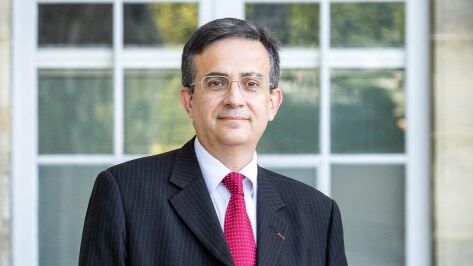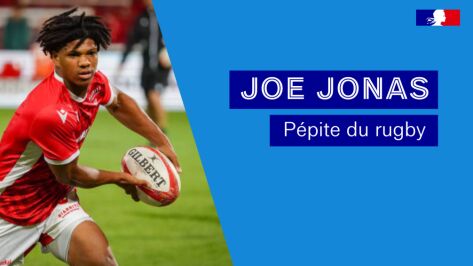 Actualités
Actualités 
[Alumni of the Month / December 2023] Arun Vignesh
Arun Vignesh, is a graduate with a master's degree in Investment Banking and Capital Markets from IESEG and also the recipient of esteemed Master's Charpak Scholarship. At present, Arun is working as Assistant Vice President, Financial Control at Barclays. Also, he holds the distinguished titles of Chartered Accountant and Company Secretariat, attaining impressive 4th and 7th All India ranks in these respective disciplines.
Q - Could you tell me more about yourself and what you're currently doing?
A - I'm Arun Vignesh, a graduate from IESEG with a Masters in Investment Banking and Capital Markets. I am also the Masters Charpak Scholarship holder. I have achieved the 7th All India Rank in Chartered Accountancy, secured the 4th All India Rank in Company Secretaries, and attained a position in the top 10 percentile in the CFA examinations. Currently, I work as the Assistant Vice President, Financial Control at Barclays, London specializing in External Reporting for the Group. I also have signficant number of years of experience as a Product Controller in Fixed Income space spread across both off shore and the on-shore teams in India and in international market.
Q - Why did you choose France as your study destination?
A - Endeavouring to challenge myself in a new international environment and to expand my forte in financial markets, I decided to choose France as my Masters destination. The positive feedback from former students and the 2 year APS also made my decision easier. The Triple accreditations of IESEG and the optimum blend of theory and practice in the programme made it a right fit for me.
Q - How was your experience in France, and how did it contribute to your professional and personal growth?
A - Despite moving in 2020 amid COVID challenges, my experience in France was rewarding in both professional and personal fronts. The hybrid learning modes during the covid pandemic, made us nimble and taught us that only change is constant.
During my Masters programme, I was able to chisel my leadership skills in my role as an International Student Ambassador for IESEG. During my time as an international student, I learnt to manage myself independently and mastered valuable skills such as time management as I juggled between my classes and the search to start my professional journey. I was also able to leverage my intercultural sensitivity gained from interactions with people from over 15 nationalities during my Masters, in my internship at a French startup, Kaiko, which specialised in crypto market data.
Looking back, I feel that being immersed in a variety of cultures introduced me to friends for life and my time working in France offered me some rewarding professional experience.
Q - What advice would you give to students considering France as their study destination?
A - Learning French is beneficial as it would facilitate cultural integration with the locals and open doors to multiple professional avenues. For internships, it is advisable to start the search early (if your program is of 1 year), preferably after few months into your programme to get a head start over your peers. Equally, it is important to stay patient without losing hope as the job search could sometimes run for 5-6 months. Majority of my peers have found internships/full time opportunities in countries such as France, Luxembourg and Belgium, United Kingdom. It is also noteworthy that internships are covered as part of the Student Visa and your curriculum in school, and the companies need not to sponsor a separate work visa if you find opportunities in France. The French language expertise required might vary across companies depending on their work environment and client base.
Q - How did the teaching methods differ in France?
A - The teaching methods were unique, with a focus on practical approach. We were asked to step into the shoes of C-suite executives to help a fictional bank navigate the economic cycles as part of the Banking stimulation game. I appreciated the Flipped Classroom approach, where students prepare and present.
Also, I quite liked the continuous assessment structure over the end of term exams and this created a constant feedback loop and eliminated the exam stress. Also, there was a day long creative problem solving workshop, where we brainstormed and created 3D models on ESG scores for a new green bond issuance and presented it to fictional investors. The crowning moment was the Inter-University Hackathon (against the University of Edinburgh), organized jointly with Refinitiv. As a team of three we leveraged our inter-disciplinary expertise in portfolio management, Python coding and machine learning gained during the Masters programme, to develop a multi-factor model for investment decision making These factors collectively played a significant role in helping us apply our skills in a real-world working environment and make us ready for the challenge ahead.
Q - What benefits did you find in studying in a foreign country?
A - Studying abroad develops an open mindset, intercultural sensitivity, independence, and imparts various life skills like time management. It prepares you for the future and enhances your resilience in every aspect of life. Given an option to study abroad, I would encourage anyone to take the opportunity with open hands.
Q - Did you learn French before going to France?
A - I completed my A1 and A2 levels of French from Alliance Française Madras. I also took French language lessons offered as part of my Masters programme. I also took my DELF B1 exams in Lille. French proficiency plays a key role in cultural integration and also opens up professional avenues.






Commentaires
Vous devez être connecté pour laisser un commentaire. Connectez-vous.